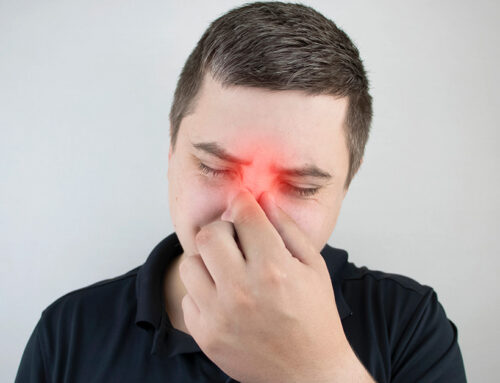
What are Summer Allergies?
Normally, your immune system produces antibodies to respond to foreign materials or allergens. When you suffer from allergies, however, your immune system generates antibodies because it perceives a specific allergen harmful, even though it may not be.
Your body's natural defense mechanisms may cause sneezing, itching, or inflammation of your digestive system, respiratory system, skin, or sinuses. Allergies can range from being a minor inconvenience (sneezing or runny nose) to a life threat (anaphylactic shock).
Causes of Summer Allergies
Most trees have completed pollen production by the end of spring. However, in the summer months, grasses and weeds are in full swing. The most common weeds and grasses that often lead to pollen allergies in the summer include:
- Ragweed
- Sagebrush
- Pigweed
- Tumbleweed
- Blue grass
- Bermuda grass
- Orchard grass
In addition to pollen, air pollution can lead to summer allergies. Ozone, which is normally in our upper atmosphere, can be particularly bad for allergies when it's at the ground level. When chemicals from vehicle exhaust mixes with sunlight, it can create ozone. Areas of heavy traffic (cities or highways), calm winds, and summer sunlight are the perfect mix for creating heavy air pollutants.
Most stinging, biting, and allergy causing insects are also very active in the summer and may contribute to summer allergies. These insects may include the following depending on where you live.
- Bees, wasps, and hornets
- Ants
- Caterpillars with poisonous hair
Other allergy causing potentials include living organisms like mold spores, dust mites, and fleas that we may not even be able to see because they're too small such.
Symptoms and Diagnosis of Summer Allergies
Allergy symptoms will vary from person to person and from allergen to allergen. Some of the milder symptoms of allergies can include:
- Sneezing
- Stuffy or runny nose
- Coughing
- Watery or itchy eyes
- Itchy ears or mouth
More serious or severe allergic reactions can include the following:
- Changes in your breathing, wheezing, chest tightness
- Vomiting or Diarrhea
- Nausea
- Unexplained quick onset of anxiousness or confusion
- Quick drop in blood pressure
- Hives or skin rash
- Swollen lips or tongue
- Anaphylaxis
Diagnosis of your allergies typically starts with your ENT specialist asking about your symptoms, possible triggers, and allergy history. It may also include a skin test where samples of multiple allergens are exposed to a small spot on your arm to see if your body reacts.
Treatments for Summer Allergies
Allergies can be treated in multiple ways depending on the specific allergen and your reaction to it. Treatment can be as simple as over-the-counter medications such as antihistamines, nasal sprays, or eye drops. If over-the-counter medication doesn't do the trick, your ENT specialist may prescribe medication.
For severe reactions (such as Anaphylaxis from insect stings), your ENT specialist may have you carry an epinephrine shot (or two) with you at all times.




